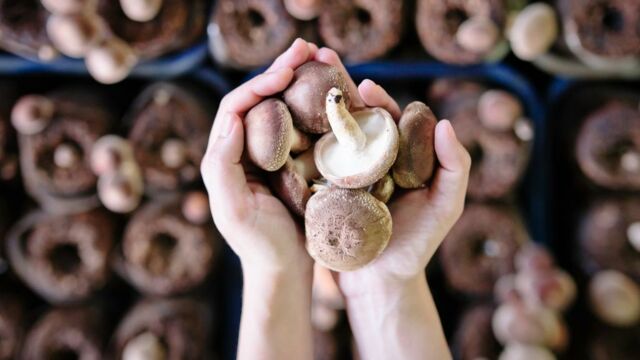When you think of mental health and mushrooms, it wouldn’t be surprising if micro-dosing was the first thought that came into your head. However, it seems that acid and magic mushrooms aren’t the only substances worth dabbling in, as plain-old white button mushrooms or lions’ mane might also do the trick.
Discover our latest podcast
According to a new study conducted by researchers at Penn State College of Medicine, regular consumption of edible mushrooms is associated with lower risks of depression.
Those who don't eat mushrooms were more at risk of depression
To conduct the study, researchers looked at the mental health and dietary data from over 24,000 adults in the US. The decade-long study showed that those who didn’t eat mushrooms were more at risk of developing depression.
The study’s participants were separated into three groups based on their mushroom consumption. Those in the third tier ate no mushrooms at all, while those in the second ate an average of 4.9 grams of the famous fungi per day. Volunteers in the highest mushroom consumption group consumed an average of 19.6 grams each day, which is about a quarter of a standard serving.
Results showed a significant correlation between mushroom consumption and lower risk of depression, even after accounting for socio-demographics, major risk factors, self-reported diseases, medications and other dietary factors. However, the study also showed no additional benefits from high mushroom intake compared to regular consumption.
The team also conducted a secondary analysis to examine the extent of mushrooms’ benefits by replacing a single serving of red or processed meat with mushrooms. Still, the results showed the substitution didn’t result in any additional benefits.
What kind of mushrooms are good for our mental health?
Researchers believe that mushrooms’ mental health superpowerscould be attributed to an antioxidant known as ergothioneine, which prevents cell and tissue damage in the body. Previous studies have also supported that those suffering from anxiety have a low total antioxidant state, and opting for a diet high in antioxidants could help reduce symptoms of the disorder.
The potassium present in white button mushrooms has also been associated with lower risks of anxiety.
Djibril Ba, a recent graduate from the epidemiology doctoral program at the College of Medicine and lead researcher of the study, explained:
Mushrooms are the highest dietary source of the amino acid ergothioneine—an anti-inflammatory which cannot be synthesized by humans.
Having high levels of this may lower the risk of oxidative stress, which could also reduce the symptoms of depression.
Unfortunately, when it comes to the study in question, researchers did not distinguish between the varieties of mushrooms the participants ate. So, they were unable to detail which mushrooms were most beneficial for mental health.
Researchers also gathered their data from the US Department of Agriculture food codes which may have been inaccurately recorded. Other dietary data was collected from National Health and Nutrition Examination Survey which required participants to self-report their dietary habits in up to two-day increments.
Information on the patient’s mental health was acquired through a Patient Health Questionnaire.
There’s no arguing that healthy habits and a balanced diet are good for both your mental and physical health in many ways. But, if you believe you might be suffering from depression or anxiety, we don’t advise self-treating with a wild mushroom risotto. If you’re concerned about your mental health, it’s worth checking in with a health professional who can recommend the appropriate treatment.















